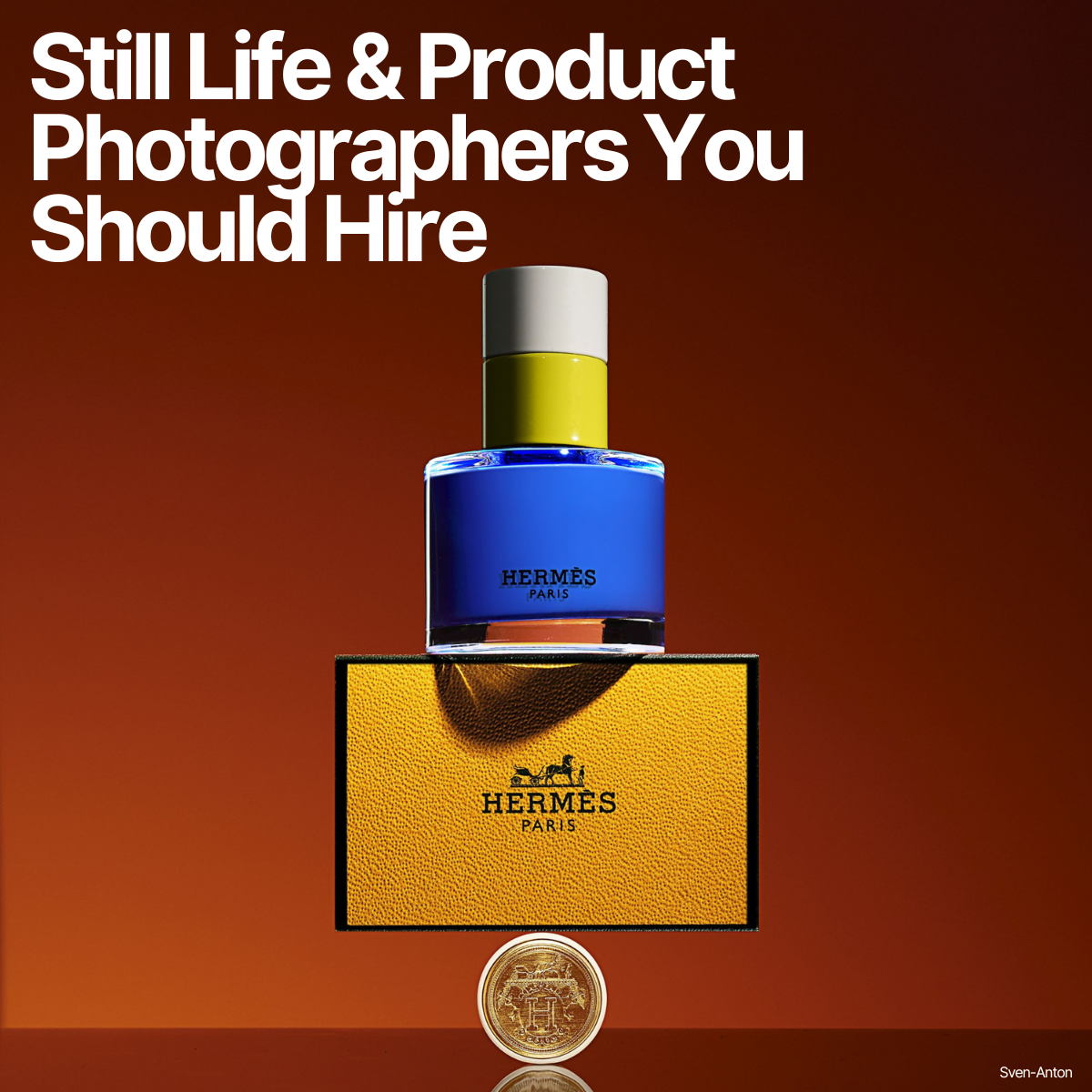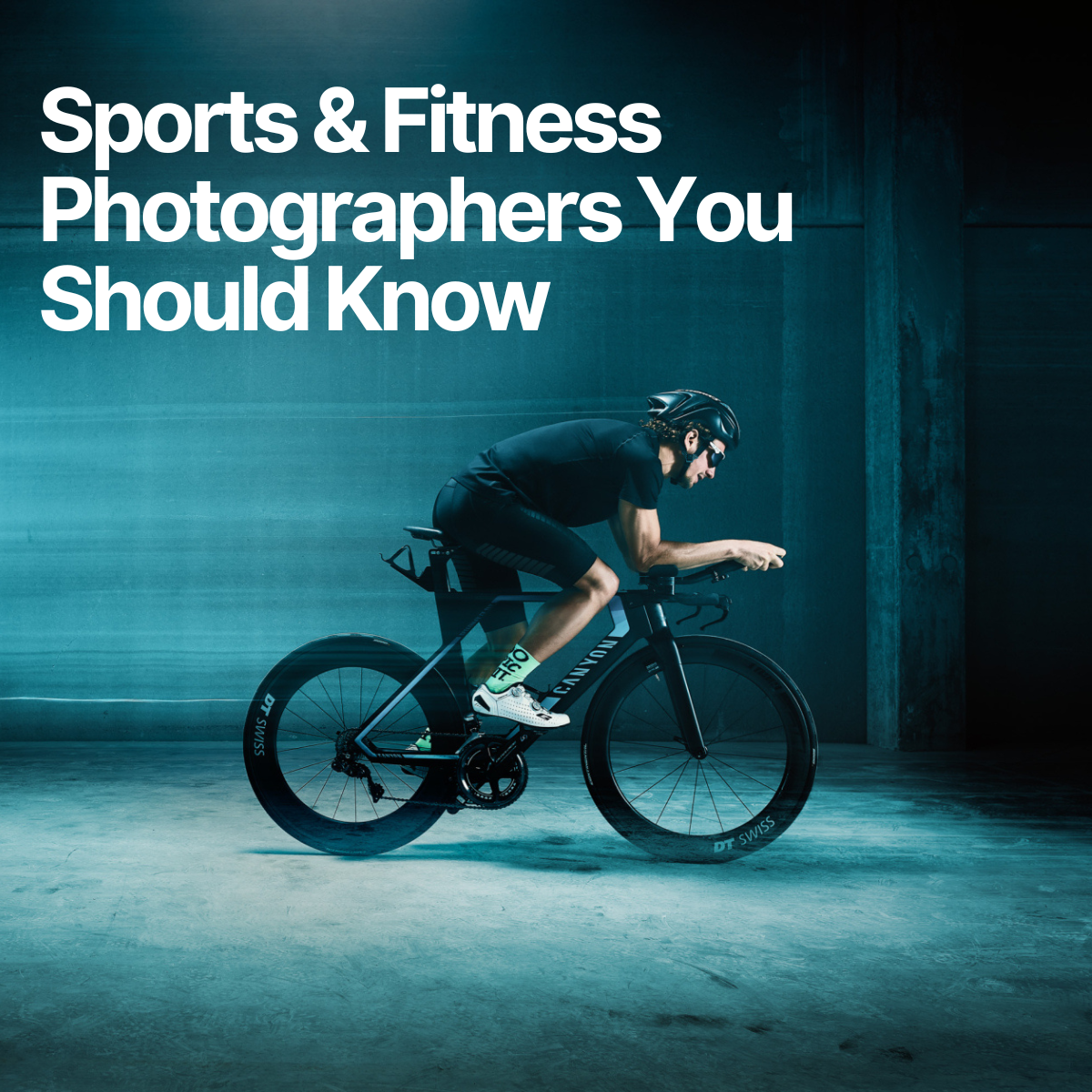The 2024 Spotlight Awards will be one to remember. With elite photographers submitting their finest work, and some of the world's top creative minds joining our jury panel, there is no shortage of talent at this year's competition!
In the spirit of celebrating creativity, we wish to highlight some of the game changers and trend-setters on this year's panel. We spoke with some of our judges to get their insights into the advertising industry, their personal philosophies on the creative process, and much more. We are delighted to bring this forthcoming series of interviews to our community - we hope you find it insightful and inspiring!

We are thrilled to introduce Bernardo González of the Advertising Photography category! He brings to the jury panel his vast copywriting experience and expertise in creative direction. We hope you enjoy our conversation with Bernardo where we discuss the importance of personal POVs in creative work, early lessons learnt, and much more!
With a background in copywriting and creative direction, what unique expertise do you bring to the judge's panel at this year's Spotlight Awards?
As a writer, I judge photography through the lens of storytelling vs just aesthetics. What’s the bigger message? How well that message is being communicated? What possibly would be the takeaway of our audience? My expertise in creative direction also helps us view photography from an emotional lens – in what measure can it connect with our audience?
Tell us about a career milestone and the subsequent impact it had on your journey through the advertising industry.
I’ve been fortunate to have my work recognized by the most prestigious international advertising festivals, including Cannes Lions, One Show, Clio, Effies, and El Sol in Bilbao, Spain. This has opened doors to being invited to judge incredibly interesting work and be a guest speaker at different advertising festivals around the world. All this culminated in landing a job at my dream agency (Droga5) as a creative director, lauded as Agency of the Decade by AdAge and AdWeek.
What is the single most important thing you learned at the beginning of your career, and how did it shape and/or influence your career trajectory thereafter?
Don’t be an asshole. Whether that’s your direct reports, your bosses, people in other departments, and production partners, treat everyone right. The industry is small and your reputation is everything. Yes, this a stressful industry with short turnarounds, thousands of curveballs, and millions of things that we cannot control. But whenever you treat someone with kindness they’ll remember. Some of the biggest opportunities I’ve had in my career, whether that was a career-defining brief or a foot in the door of my dream agency, have all come from the people I least expected.
What are the most essential qualities you look for when scouting creative talent?
I like people who have a strong personality and POV in their portfolio. Even if it’s student work, I like seeing some sort of connecting thread in all of their work. Whether that’s someone who specializes in strong comedy writing or hypnotic and charming visual-driven work, I like to see their personalities come across in the work. That tells me they had a big role in crafting the work and that they’re producing work they truly believe in.
What balance should creatives strike between capitalizing on industry trends, and staying true to their unique visions?
I don’t think these are necessarily opposing things. Navigating industry trends makes the work relevant but injecting a creative’s unique POV and interests makes the work fresh and different. I think both are needed to create truly interesting work that stands apart from the rest.
Whether you're a freelancer or a salaried employee, collaboration is inevitable in creative work. Can you tell us what you consider to be the mark of a good collaborative effort, and why?
Before I became a creative director I loved working with creative directors who would let me write and inject my POV into the work vs having them prescribe everything to make every idea their idea. Now as a Creative Director, I try to live by that ethos. If I’m working with a copywriter, I’ll let the copywriter write, the art director art direct, the film director direct the commercial, and the editor edit. Trust and accountability are very important to let a team feel ownership over their work. And direct that work by empowering them to inject their POV on everything they touch. Of course, in the end, it’s my job to deliver a holistic campaign with a certain air of creative excellence. But I believe that can be achieved by pushing and guiding the work rather than dictating it myself. In the end, if your team looks good, you as a leader look good as well.
It's said that if you're not failing, you're not trying. In your opinion, what role does failure play in the journey to success in any creative role and/or industry?
After 10+ years in this industry, there’s one thing that still makes me feel like a student in ad school – the fear of failure. Every new brief, I have the same looming thought “What if I suck?”, what if I don’t have it in me anymore”. It might take a night. Or maybe a week. But after writing a few failed thoughts on paper that confidence slowly grows back until you have something you like. The fear of failure is normal, it’s on us to tame it and put enough time and love to turn that assignment you were terrified of into something great.
As you know, success in any creative field takes a timeless and steadfast dedication to one's craft. What should creative professionals remember on their journeys to realizing their full potential?
This will sound counterintuitive. But take breaks. Stop working. Go to the movies. Get a beer with a friend. Travel. Go somewhere weird. I’ve never had a good idea stressing out at the office on a Sunday after 8 pm. Never. All the good stuff I come up with comes when I’m relaxed and having fun. Now, once you have a few ideas that you love work like hell to make them the best they can be. Work like hell to put up a bulletproof deck for clients. Work like hell with your production partners to shoot the idea just how you imagined it. And work like hell with the editor to make it as funny emotional or charming as it can be. But before that whole journey, just relax and be kind to yourself.
The Spotlight Awards, though a competition, is at its core a celebration of photography and creativity. As a judge, what value do you think our Awards offer participating photographers and judges?
It’s a great way to give a spotlight (no pun intended) to diverse photographers and creatives who might not have a spotlight otherwise. And create a compendium of different POVs that enriches the brains of everyone involved (contestants and judges alike).
We thank Bernardo for joining this year's jury panel and for engaging in such a thoughtful discussion. If you enjoyed this conversation, we invite you to join us over the coming weeks for more discussions with many of our talented judges!

%20(2100%20x%20405%20px).png)


